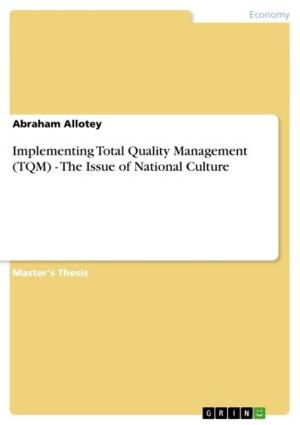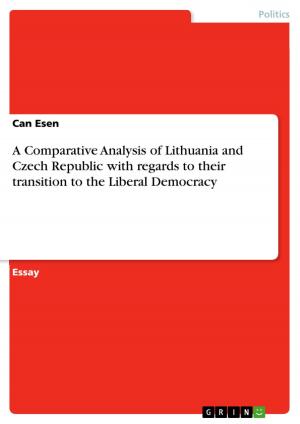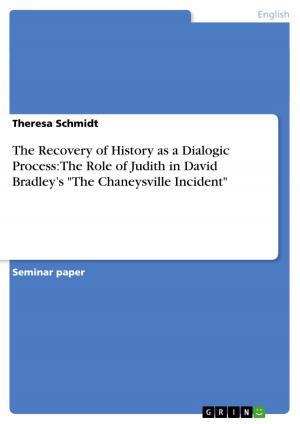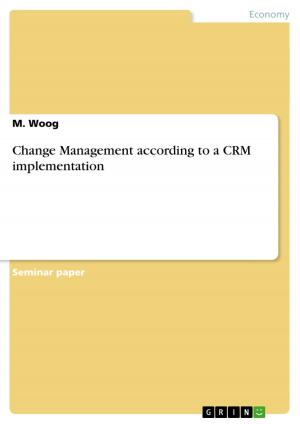| Author: | Sarah Stolle | ISBN: | 9783638542067 |
| Publisher: | GRIN Publishing | Publication: | September 6, 2006 |
| Imprint: | GRIN Publishing | Language: | English |
| Author: | Sarah Stolle |
| ISBN: | 9783638542067 |
| Publisher: | GRIN Publishing |
| Publication: | September 6, 2006 |
| Imprint: | GRIN Publishing |
| Language: | English |
Seminar paper from the year 2006 in the subject Economics - Case Scenarios, grade: 1,5 Germany, 4 Finland, University of Tampere, course: South-East Asia as a Business Area, 8 entries in the bibliography, language: English, abstract: Malaysia has been a trade centre for centuries. In the premodern history traded goods were in particular spices, tin and rubber. But the long-term colonial rule and the occupation of the Japanese in World War II didn't let the economy rise. On the contrary the economy was in a disasterous situation. But Today Malaysia can be regarded as one of the most successful asian countries which achieved a really effective transition into a modern economy. The most important reason for this change were the consequent policies of the Malaysian government since the 1970s. It was able to integrate the ethnic outsider, the Malay, into the society and economy. Through its development programs it was possible to get rid of the high poverty rate, to built up much more equality in the society and create a well working economy with annual growth rates. Malaysia became a export nation which traded in the last decades mostly textile or rubber products. But in nower days Malaysia also has got a high share of exports in the electronic and high tech branche. Government policy has generally accorded a central role to foreign capital, while at the same time working towards more substantial participation for domestic, especiallybumiputera,capital and enterprise. The current plan 'Vision 2020' aims to reach a fully developed industrialized economy in 2020. The first point in the essay is a short background information about the country Malaysia. I continue with the economic history from the premodern history up to the era after the Second World War. The third chapter dicusses the policies of the government; the policies of the transition as well as the contemporary policies. Finally the essay points out the present economic system and why it is so successful.
Seminar paper from the year 2006 in the subject Economics - Case Scenarios, grade: 1,5 Germany, 4 Finland, University of Tampere, course: South-East Asia as a Business Area, 8 entries in the bibliography, language: English, abstract: Malaysia has been a trade centre for centuries. In the premodern history traded goods were in particular spices, tin and rubber. But the long-term colonial rule and the occupation of the Japanese in World War II didn't let the economy rise. On the contrary the economy was in a disasterous situation. But Today Malaysia can be regarded as one of the most successful asian countries which achieved a really effective transition into a modern economy. The most important reason for this change were the consequent policies of the Malaysian government since the 1970s. It was able to integrate the ethnic outsider, the Malay, into the society and economy. Through its development programs it was possible to get rid of the high poverty rate, to built up much more equality in the society and create a well working economy with annual growth rates. Malaysia became a export nation which traded in the last decades mostly textile or rubber products. But in nower days Malaysia also has got a high share of exports in the electronic and high tech branche. Government policy has generally accorded a central role to foreign capital, while at the same time working towards more substantial participation for domestic, especiallybumiputera,capital and enterprise. The current plan 'Vision 2020' aims to reach a fully developed industrialized economy in 2020. The first point in the essay is a short background information about the country Malaysia. I continue with the economic history from the premodern history up to the era after the Second World War. The third chapter dicusses the policies of the government; the policies of the transition as well as the contemporary policies. Finally the essay points out the present economic system and why it is so successful.















